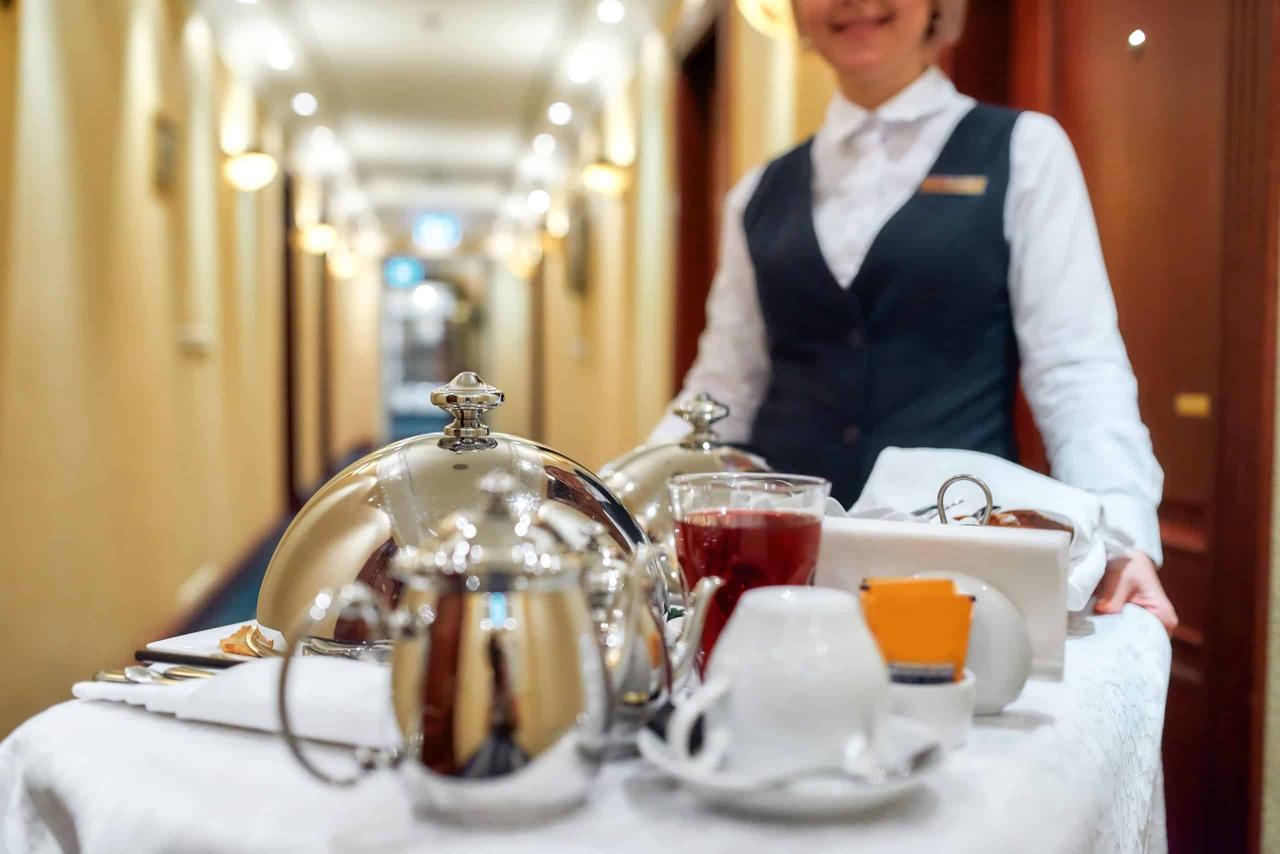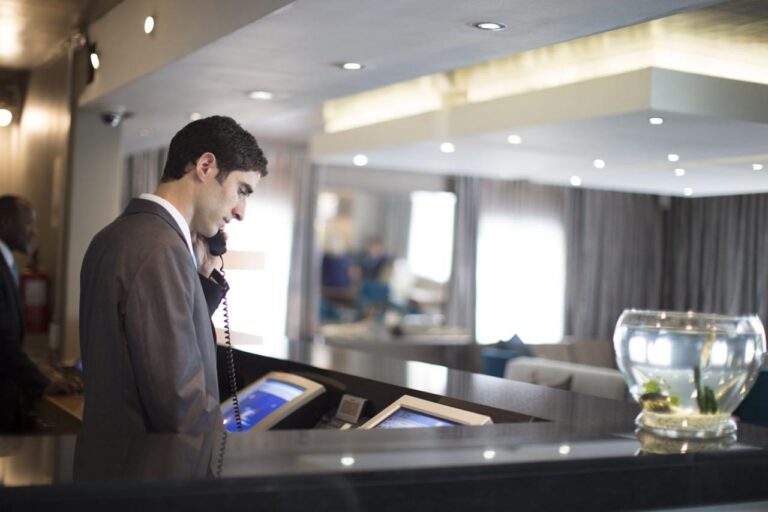The hospitality industry, a vibrant and ever-evolving sector, offers a vast landscape of career opportunities, extending far beyond the traditional image of hotel receptionists and restaurant servers. From the meticulous planning of grand events to the intricate management of global hotel chains, hospitality jobs provide dynamic paths for individuals seeking to blend passion with profession, fostering unparalleled growth and continuous learning. For those drawn to service, diverse environments, and the exciting world of travel, a career in hospitality promises a rewarding journey filled with unique challenges and immense personal and professional satisfaction. This comprehensive article delves into the expansive realm of hospitality jobs, exploring the diverse roles available, the essential skills required, the profound impact of the industry on global economies, and the exciting future that awaits professionals in this resilient sector.
The Diverse Landscape of Hospitality Careers

The hospitality industry is a mosaic of interconnected segments, each offering distinct career paths and opportunities for specialization. It’s a sector that values both front-facing charisma and meticulous behind-the-scenes efficiency.
A. Accommodation Sector
The accommodation sector, primarily hotels, resorts, and guesthouses, offers the broadest spectrum of hospitality jobs. These roles ensure guests have a comfortable and memorable stay.
A. Front Office:
A. Front Desk Agents: The first point of contact, handling check-ins, check-outs, reservations, and guest inquiries. Requires excellent communication and problem-solving skills.
B. Concierge: Providing personalized recommendations, arranging tours, transportation, and special requests. Requires extensive local knowledge and connections.
C. Guest Relations Managers: Focusing on guest satisfaction, resolving complaints, and building loyalty.
D. Reservations Agents: Managing bookings, maximizing occupancy, and handling inquiries via phone or online channels.
B. Housekeeping and Laundry:
A. Room Attendants: Ensuring cleanliness and tidiness of guest rooms. The backbone of guest satisfaction.
B. Supervisors/Managers: Overseeing cleaning schedules, quality control, and managing housekeeping staff.
C. Laundry Attendants: Managing linen inventory, washing, and pressing.
C. Food & Beverage (F&B):
A. Chefs and Cooks: From executive chefs overseeing entire culinary operations to line cooks preparing dishes in various restaurant outlets.
B. Servers, Bartenders, and Baristas: Providing direct service to guests in restaurants, bars, and cafes. Requires strong customer service and product knowledge.
C. Restaurant/Bar Managers: Overseeing daily operations, staff management, and ensuring quality and profitability.
D. Banquet and Catering Staff: Handling food and beverage service for events, conferences, and weddings.
D. Sales & Marketing:
A. Sales Managers: Attracting and securing corporate accounts, group bookings, and event business.
B. Marketing Managers: Developing campaigns, managing online presence, and promoting the hotel’s brand and offerings.
C. Revenue Managers: Utilizing data and analytics to optimize pricing and maximize revenue for rooms and other services.
E. Operations and Administration:
A. General Managers: The head of the hotel, responsible for overall operations, financial performance, and guest satisfaction.
B. Human Resources: Recruiting, training, and managing employee relations.
C. Finance and Accounting: Managing budgets, payroll, and financial reporting.
D. Engineering and Maintenance: Ensuring the physical plant of the hotel (HVAC, plumbing, electrical) is well-maintained and operational.
E. Security: Ensuring the safety and security of guests, staff, and property.
These roles are fundamental to the daily functioning of any accommodation establishment.
B. Food & Beverage Services
Beyond hotel restaurants, the Food & Beverage (F&B) sector encompasses standalone restaurants, cafes, bars, catering companies, and event venues.
A. Restaurant Management: From fine dining establishments to casual eateries, roles include general managers, kitchen managers, and front-of-house supervisors.
B. Culinary Arts: Chefs, pastry chefs, sous chefs, and kitchen staff who create diverse culinary experiences.
C. Bartending and Mixology: Skilled professionals crafting beverages and providing social experiences.
D. Catering and Events: Professionals specializing in off-site catering, event planning, and execution for various functions.
E. Sommeliers and Baristas: Experts in wine and coffee, enhancing the guest’s specific beverage experience.
This sector is dynamic, creative, and highly customer-centric.
C. Travel and Tourism
The broader travel and tourism sector involves facilitating movement and experiences for travelers.
A. Tour Operators and Travel Agents: Designing and selling travel packages, advising clients, and managing bookings.
B. Airline and Airport Operations: Roles in ground staff, cabin crew, flight operations, and airport management.
C. Cruise Lines: Opportunities on board ships in hospitality, entertainment, and operational roles, as well as land-based sales and marketing.
D. Destination Management Companies (DMCs): Local experts who manage logistics for groups and events within a specific destination.
E. Tourist Information Centers: Providing guidance and assistance to visitors.
These roles are pivotal in connecting travelers with their desired destinations and experiences.
D. Event Management
The event management sector focuses on planning, coordinating, and executing a wide range of events.
A. Event Planners: Orchestrating corporate meetings, conferences, weddings, concerts, and festivals.
B. Venue Managers: Overseeing operations and logistics at event spaces.
C. Exhibition Organizers: Managing trade shows and expos.
D. Audiovisual Technicians: Providing technical support for events.
E. Catering Managers for Events: Specializing in F&B for large gatherings.
This sector requires meticulous organization, creativity, and strong problem-solving skills.
E. Recreation and Leisure
This segment focuses on providing entertainment, relaxation, and engaging activities.
A. Theme Park Staff: Roles in operations, guest services, entertainment, and retail within amusement parks.
B. Spa and Wellness Professionals: Massage therapists, estheticians, fitness instructors, and wellness coaches at resorts and standalone spas.
C. Casino Operations: Dealers, pit managers, security, and customer service roles within gaming establishments.
D. Recreation Managers: Planning and overseeing activities at resorts, cruise ships, or community centers (e.g., kids’ club supervisors, activity coordinators).
These roles are about creating enjoyable and memorable leisure experiences.
Essential Skills for Hospitality Professionals

While specific roles require specialized knowledge, certain core competencies are universally valued and essential for success in any hospitality job.
A. Exceptional Customer Service and Communication
At the heart of hospitality lies exceptional customer service. This requires:
A. Active Listening: Understanding guest needs and concerns, even unspoken ones.
B. Clear and Concise Communication: Both verbal and written, ensuring guests receive accurate and timely information.
C. Empathy and Patience: Handling diverse guest personalities and challenging situations with grace.
D. Problem-Solving: Quickly and effectively resolving issues to ensure guest satisfaction.
E. Professional Demeanor: Maintaining a positive and welcoming attitude, even under pressure.
These skills are non-negotiable for creating memorable guest experiences.
B. Interpersonal and Teamwork Abilities
Hospitality is a people-centric industry, demanding strong interpersonal and teamwork abilities.
A. Collaboration: Working effectively with colleagues across departments to deliver seamless service.
B. Conflict Resolution: Mediating disagreements and fostering a positive work environment.
C. Cultural Awareness: Respecting and adapting to diverse guest and colleague backgrounds, especially in an international setting.
D. Leadership (for management roles): Inspiring and motivating teams, providing clear direction and support.
The ability to work harmoniously in a diverse team is crucial for operational efficiency.
C. Adaptability and Problem-Solving Skills
The unpredictable nature of hospitality demands adaptability and strong problem-solving skills.
A. Flexibility: Adapting to changing guest demands, unexpected situations (e.g., weather disruptions, last-minute requests), and fluctuating workloads.
B. Resourcefulness: Finding creative solutions to challenges with limited resources.
C. Composure Under Pressure: Maintaining calm and professionalism during busy periods or critical incidents.
D. Quick Thinking: Making informed decisions rapidly to address immediate issues.
These skills ensure smooth operations even when things don’t go according to plan.
D. Attention to Detail and Organizational Skills
In an industry where perfection is often the goal, attention to detail and organizational skills are paramount.
A. Meticulousness: Ensuring cleanliness, accurate orders, precise reservations, and flawless event execution.
B. Time Management: Juggling multiple tasks and prioritizing effectively to meet deadlines.
C. Systematic Approach: Following procedures and protocols consistently to maintain high standards.
D. Record Keeping: Accurate documentation of guest preferences, requests, and operational data.
These skills ensure consistency and quality across all services.
E. Technological Proficiency
As hospitality increasingly embraces innovation, technological proficiency is becoming indispensable.
A. Property Management Systems (PMS): Familiarity with hotel software for reservations, check-ins, and billing.
B. Point-of-Sale (POS) Systems: For F&B and retail transactions.
C. Online Booking Platforms: Understanding how OTAs and direct booking engines work.
D. Customer Relationship Management (CRM) Tools: For managing guest data and personalization.
E. Digital Communication Tools: Utilizing apps for internal communication and guest requests.
A willingness to learn and adapt to new technologies is crucial for modern hospitality professionals.
The Economic and Societal Impact of Hospitality Jobs
Beyond individual careers, the hospitality industry, fueled by its diverse workforce, is a global economic powerhouse and a significant contributor to societal well-being.
A. Major Global Economic Contributor
The hospitality and tourism sector is one of the world’s largest industries, directly and indirectly contributing trillions of dollars to global GDP annually. Hospitality jobs are the backbone of this contribution, driving revenue through accommodation, food, travel, and entertainment services.
B. Significant Job Creation and Employment Diversity
Hospitality is a massive job creator, employing hundreds of millions worldwide. It offers incredible employment diversity, ranging from entry-level positions requiring minimal experience to highly specialized management and executive roles, creating pathways for individuals from all educational backgrounds and skill sets.
C. Supporting Local Economies and Supply Chains
Hospitality jobs generate direct income for individuals, who then spend that money in local communities. Hotels and restaurants also rely heavily on local supply chains for food, beverages, linens, maintenance, and various services, creating a powerful multiplier effect that supports countless other local businesses and industries.
D. Fostering Cultural Exchange and Understanding
Hospitality professionals regularly interact with people from diverse cultural backgrounds, both colleagues and guests. This daily interaction fosters cultural exchange and understanding, breaking down barriers and promoting a more interconnected and empathetic global society.
E. Driving Innovation and Infrastructure Development
The constant demand for better guest experiences and operational efficiency drives continuous innovation within the hospitality sector, from new technologies to sustainable practices. The development of hotels and resorts also frequently leads to infrastructure development (roads, airports, utilities) that benefits local communities beyond tourism.
F. Providing Career Mobility and Global Opportunities
The standardized nature of many hospitality operations means that skills learned in one hotel or country are often transferable to another. This provides exceptional career mobility and global opportunities, allowing professionals to work in diverse locations around the world and build international careers.
Navigating Career Growth in Hospitality
The hospitality industry offers clear pathways for career progression, from entry-level positions to executive leadership roles, with continuous learning and development being key.
A. Entry-Level Opportunities and Training
Many entry-level opportunities in hospitality do not require extensive prior experience, making the industry accessible. Roles like front desk agent, room attendant, or server provide foundational experience. Most reputable establishments offer comprehensive on-the-job training, teaching new hires essential skills and service standards. This is where a passion for service truly begins.
B. Specialization and Skill Development
As professionals gain experience, they can choose to specialize in specific areas (e.g., F&B management, revenue management, event planning, spa operations). Continuous skill development is crucial, whether through:
A. Internal Training Programs: Many large hotel chains have robust internal training and leadership development programs.
B. External Certifications: Obtaining certifications in areas like hospitality management, culinary arts, or event planning.
C. Higher Education: Pursuing diplomas or degrees in hospitality management or related fields.
D. Mentorship: Learning from experienced professionals within the industry.
This ongoing learning keeps professionals competitive and knowledgeable.
C. Cross-Functional Experience and Lateral Moves
Gaining cross-functional experience by working in different departments (e.g., moving from front office to sales, or F&B to HR) can be highly beneficial for career growth. Lateral moves can broaden a professional’s understanding of overall hotel operations, preparing them for more senior management roles that require a holistic perspective.
D. Leadership Development and Management Roles
For those aspiring to leadership, the industry provides structured leadership development pathways. Roles like team leader, supervisor, and assistant manager prepare individuals for increasing levels of responsibility. The ultimate goal for many is to reach management roles such as Department Head, Director, or General Manager, overseeing entire operations and strategic direction.
E. Networking and Industry Connections
Building a strong professional network and industry connections is invaluable. Attending industry events, joining professional associations, and leveraging platforms like LinkedIn can lead to mentorship opportunities, job leads, and collaborations. Relationships are key in this people-driven industry.
F. Embracing Global Opportunities
One of the most exciting aspects of hospitality careers is the potential for global opportunities. Skills are highly transferable, allowing professionals to work in diverse countries and cultures, gaining international experience and broadening their horizons. Many large hotel chains actively encourage international transfers for their high-potential employees.
The Future of Hospitality Jobs
The hospitality job market is constantly evolving, shaped by technological advancements, changing consumer expectations, and a growing emphasis on sustainability and well-being.
- Human-Tech Collaboration: The future will see more emphasis on human-tech collaboration, where technology handles repetitive tasks, freeing human staff for more complex problem-solving, emotional intelligence-driven interactions, and hyper-personalized guest experiences. Roles like “AI Liaison” or “Experience Curator” will emerge.
- Data Analytics and AI Specialization: A surge in demand for professionals with data analytics and AI specialization within hospitality, particularly in revenue management, marketing, and personalization, to interpret guest data and optimize operations.
- Sustainability and Green Operations Experts: Growing importance of roles focused on sustainability and green operations, including environmental compliance managers, sustainable sourcing specialists, and regenerative tourism developers, as the industry moves towards net-zero and beyond.
- Wellness and Holistic Well-being Roles: An expansion of wellness and holistic well-being roles, including certified wellness coaches, sleep therapists, nutritionists, and mental health support staff, as hotels become centers for guest rejuvenation.
- Experience Designers and Personalization Architects: New roles dedicated to crafting bespoke guest journeys, focusing on designing unique, memorable, and highly personalized experiences, rather than just providing standardized services.
- Hybrid Event Technicians and Planners: As hybrid events become common, there will be a greater need for professionals who can seamlessly integrate in-person and virtual components, requiring skills in both event management and digital broadcasting.
- Robotics and Automation Specialists: Demand for individuals who can manage, maintain, and integrate robotics and automation systems into hotel operations, ensuring efficiency and seamless interaction with human staff.
- Localized Cultural Ambassadors: A renewed focus on localized cultural ambassadors within hotels, who can provide guests with authentic insights into the local community, history, and traditions, enriching the sense of place.
- Flexible Work Models: The industry will embrace more flexible work models to attract and retain talent, including remote work options for certain administrative roles, compressed workweeks, and more adaptable scheduling for operational staff.
Conclusion
Hospitality jobs represent a dynamic and rewarding career path for individuals passionate about service, people, and the vibrant world of travel. With diverse roles, clear growth trajectories, and a commitment to innovation and sustainability, the hospitality industry is not just offering jobs; it’s building futures, connecting cultures, and creating unforgettable experiences for millions around the globe. For those ready to embark on a journey of continuous learning and meaningful contribution, hospitality truly offers dynamic career growth.










